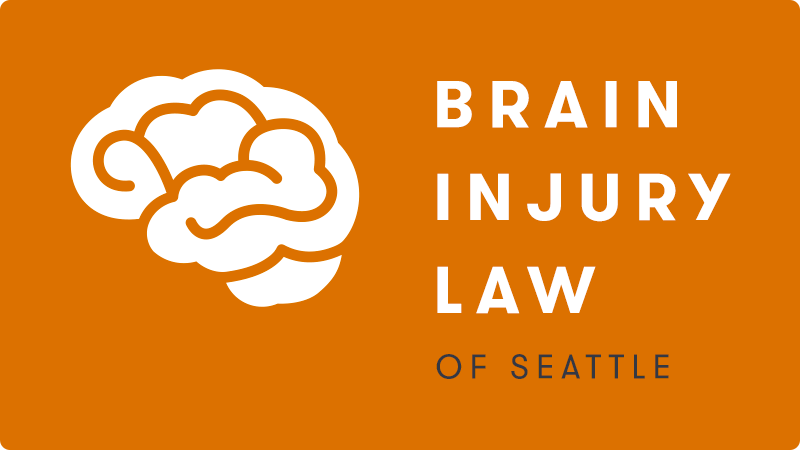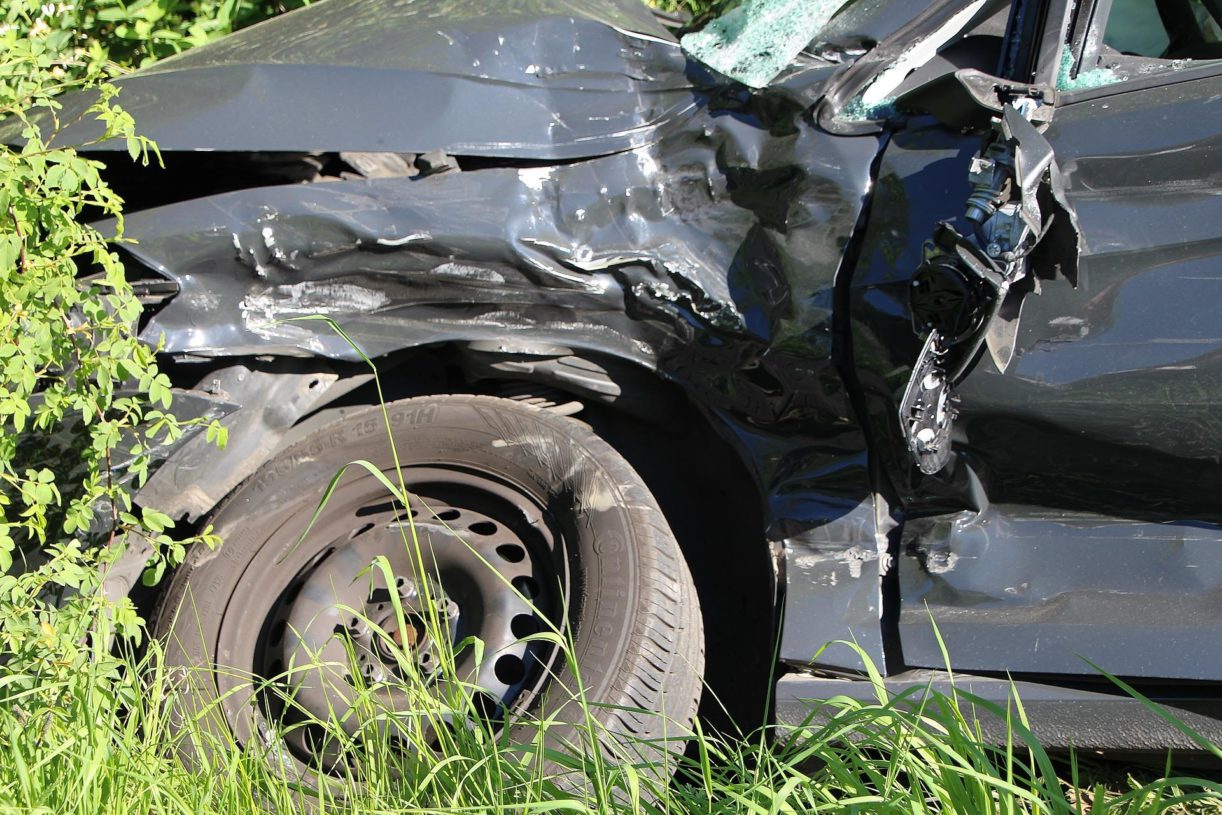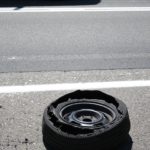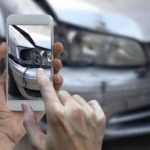A totaled car can cost you thousands of dollars and leave you carless for several weeks, if not longer. It severely hinders your daily life and often complicates rudimentary tasks like going to the store.
That’s why Brain Injury Law of Seattle put together a guide to teach you what happens when your car is totaled and the steps you must take after experiencing a collision.
Brain Injury Law of Seattle helps residents get the financial compensation they need after suffering a traumatic brain injury. Our award-winning team fights on your behalf to ensure you receive professional legal advice and representation to recover from your injuries as swiftly and efficiently as possible. Continue reading to learn what happens when a car is totaled and how to move forward after the collision.
Page Contents
Related Article
Road Rash Treatment
Arterial Spin Labeling
Totaled Car: Everything You Need to Know
Before you learn how to recuperate from totaling your car, you must understand a totaled car’s meaning. If you crash your car and the repairs cost more than the vehicle’s overall value, your car becomes totaled.
Some states have thresholds that help define totaled vehicles. This prevents you from asking numerous garages, “Is my car totaled?” after a collision, making it easier on you later on.
For example, if your car’s repairs cost more than 75% of its value in Alabama, the insurance company labels it as totaled. In other states, insurers determine your vehicle’s condition and will notify you if the car is worth repairing.
In short, totaled cars suffer from irreparable or expensive damages that aren’t worth the repair costs.
When Is a Car Considered Totaled?
Your insurance company looks at your car’s current sales value and compares it to the repair costs to determine if it’s totaled or worth saving.
If you experience an accident, you must contact your insurance agent and file a claim to see if it qualifies for repairs. The insurance company analyzes various sales data regarding the following.
- Your cars make
- Model year
- Body type
- Condition
- Mileage
Your insurance company compares your car with similar vehicles’ sales prices within your area and often obtains quotes from multiple licensed car dealers within 150 miles of your car’s storage facility. The insurance company also examines local media advertisements and computerized data to further determine your vehicle’s value.
Once they determine your car’s value and repair cost, you can ask for a total loss valuation repair from your insurance company. The report provides the fair market value calculation data the insurer used to evaluate your vehicle.
The insurer will then provide payment for your car’s cash valve after charging for the deductible on your collision or comprehensive coverage.
Insurance Coverage by a Totaled Car
The steps your insurance takes after the collision depends on the coverage you have on your vehicle. There are several insurance plans available that cover various aspects of an accident. Some cover your car’s damage, while others handle repairs for the associated party’s vehicle.
Below are the most common insurance policies.
Collision Insurance
Collision insurance covers the cost to repair or replace your vehicle after becoming involved in an accident with another car or object. Most states require collision insurance if you lease or finance your vehicle. However, once you pay off your car, collision insurance becomes optional.
Comprehensive Insurance
Comprehensive insurance, also called other-than-collision coverage, provides financial aid when your car becomes stolen or damaged outside of a collision. It covers the following damage:
- Theft
- Vandalism
- Fire damage
- Hail damage
- Damage caused by natural disasters
- Falling objects
- Damaged caused by animals
- Civil disturbance damage (riots or unrest damage)
Like collision insurance, most states require comprehensive insurance if you lease or finance your vehicle. If you own your car outright, comprehensive insurance becomes optional.
Property Damage Liability
Property damage liability is a crucial aspect of your car insurance policy that pays for the rival party’s vehicle or property damage after an accident. Although property damage liability doesn’t cover your car’s collision damage, it prevents you from paying out of pocket for the other person’s repairs if you are at fault for the crash.
Nearly all US states require property damage liability coverage whether you own, lease, or finance your vehicle.
Uninsured/Underinsured Motorist Coverage
Underinsured and uninsured motorist coverage helps pay for your vehicle’s repairs if the other party doesn’t have proper insurance, is involved in a hit and run, or doesn’t have sufficient liability coverage. Although it typically costs more to add to your insurance policy if your state has numerous uninsured drivers, it can save you thousands on costly repairs, making it ideal for most drivers.
Gap Insurance
Gap Insurance helps you pay the difference between the amount owed on your auto lease or loan and the totaled vehicle’s cash value. If your reimbursement check doesn’t cover the total amount owed on your car payment, gap insurance may cover the remaining loan or lease amount.
How Is Your Car’s Value Decided?
The insurance company compares your car with similar vehicles in your surrounding area to determine its value. Insurance agents often utilize local car dealerships and computerized data to establish your car’s current rate.
How Does the Insurance Company Determine a Car Is a Total Loss?
Figuring out what happens to a totaled car is relatively simple. After a collision, your insurance company weighs the total repair costs with your vehicle’s current sales price. If the repairs cost more than the vehicle’s worth before the collision, they categorize it as totaled.
The insurance company then offers you a cash settlement for the totaled car or a replacement vehicle with a similar overall value.
What Happens if You Still Have to Pay a Loan on a Totaled Car?
You are responsible for paying off your car loan even if you didn’t cause the accident. However, gap insurance prevents you from paying off the car out of pocket if it becomes totaled in the collision.
Can You Keep Your Totaled Vehicle?
Many drivers ask themselves, “What happens if your car is totaled, but you still want to keep the vehicle?” In these cases, the insurance company subtracts the residual value from your settlement and returns your car. However, you or your insurer must contact your state’s Department of Licensing within 15 days to report the totaled vehicle.
Failure to report the totaled car results in a misdemeanor in most states.
Can You Total Your Car Out?
It’s up to your insurance company to determine whether to total the vehicle based on the damage and the car’s overall value. If the repairs exceed your car’s worth, they categorize it as a totaled vehicle. However, if the damage doesn’t surpass your car’s total rate, the insurer won’t classify it as totaled.
How Much Insurance Pays for a Totaled Car
Your insurance company analyzes several statistics to determine your totaled car’s value. It looks at your vehicle’s condition, model, mileage, and other critical factors associated with its worth. The insurance company then sends you your car’s assessed price to see if you agree and accept its estimate.
If you agree, the insurance company will pay you a cash settlement or provide you with a car of similar value. Insurance companies use the following to construct their settlements.
- The vehicle’s value immediately before the collision.
- Sales taxes associated with the vehicle’s total fair market price.
- Other fees required to purchase the car before the accident.
Steps to Take When the Car Is Totaled
After experiencing an accident, you must follow the following steps.
File a Claim
After ensuring you and the rival party didn’t suffer substantial injuries during the collision, you must file an insurance claim. Contact your insurance agent immediately and inform them of the situation.
Assess the Damages
Once you file an insurance claim, evaluate the damage and let your insurance company know the extent as soon as possible. It’s best to take a few pictures of the damage to help your insurance company with the assessment.
Know Your Car’s Fair Market Value
You always want to research your car’s fair market value before accepting the insurance company’s offer. Look up your car’s current asking price online or contact a local dealership to determine an equitable rate.
Contact Your Lender
If you don’t own your car, always contact your lender and inform them of the accident.
Negotiate the Claim with the Insurer
Insurers usually want to pay you the lowest possible rate after a collision. Try to negotiate with the insurer to ensure you get the most out of your claim.
Shop for a New Car
Start the car buying process as soon as you recover from the accident and receive your claim.
Get Help from a Car Accident Attorney to Protect Your Rights
If you total your car and want to ensure you receive a just insurance claim, contact Brain Injury Law of Seattle. Our team has extensive experience representing car accident victims and will work with your insurance company to help you with the complicated claim process.
Whether you want to know what happens if your car is totaled or need help filing a claim, brain injury attorney from Brain Injury Law of Seattle is here to help.
Contact Brain Injury Law of Seattle at (425) 274-3457 and see what our team can do for you today!






